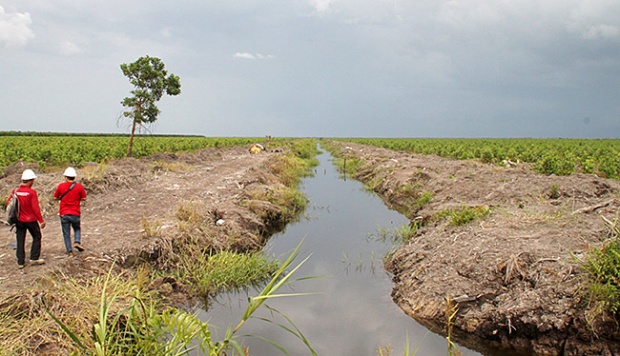Daniel Kaufmann: Indonesia Needs to Finalize New Oil, Gas Law
19 October 2018 15:31 WIB

TEMPO.CO, Jakarta - Despite having an abundance of natural resources, Indonesia still hasn't managed to distribute wealth equally and level-out the people's welfare. Good governance expert Daniel Kaufmann said Indonesia's position in good governance has been quite satisfactory, "but there are still homework that needs to be done with serious commitment," he said.
As he leads the Natural Resource Governance Institute, Kaufmann designed a method used to measure the transparency and accountability of natural resources. The result of studies in 58 nations—including Indonesia—were published in the Resource Governance Index (RGI) in 2013.
Kaufmann was in Jakarta to speak at "The Impacts of Low Oil Price on Indonesia's Reform Agenda" seminar held collaboratively by the Natural Resource Governance Institute and Tempo English. Also, he spoke to Tempo's Hermien Y. Kleden, Sadika Hamid, Gustidha Budiartie about his views on the issue. Excerpts:
In the Resource Governance Index 2013 Indonesia ranks 14th in natural resources management. What bases were used to measure the index?
We must look at the overall perspective, not just numbers. So far, we have assessed 58 countries that are rich in natural resources. We look at whether the existing institutions are quite transparent and accountable.
Were there denials from countries with bad scores?
Reactions were varied. We need to keep in mind that this index research only covered transparency issues, not the entire governance of natural resources management.
What suggestions do you have for Indonesia to fix its score?
There is plenty of homework in the extractive sectors. There must be a commitment to fix them, especially those related to new initiatives concerning oil and gas laws that are not completed. [The government] needs to firmly regulate the function and authority of regulators such as SKK Migas and state-owned enterprises, such as Pertamina.
The Indonesian government is currently formulating the Oil and Gas Law revision. Do you have any recommendation?
The government could learn from the interesting experiences of other countries. Malaysia's success with Petronas could be an example, or Brazil's achievements with Petrosal.
So, not about SOEs playing the role of regulators?
Of course not. Just look at Norway and Statoil. We can learn from general models, but the important thing is whether or not the models are suitable for the country in question.
What do we need to do to push SOEs so that the oil and gas sector could be more independent and contribute optimally?
If you could combine healthy economic and political competitions, that would be a great help.
How exactly?
Sound economic competition will make businesses more open. Invite investors and private sectors. In politics, make sure the check-and-balance function is working in full force in the government.
For the short term, what are your ideas for Indonesia's improvements?
Finalize the revision in the oil and gas law. Of course there will be political tugs here and there. Run a thorough check and reveal the people who reject the amendments and why. Here, the media should help.
*The complete version of this interview is available in the March 30 2015 edition of Tempo English Magazine.























